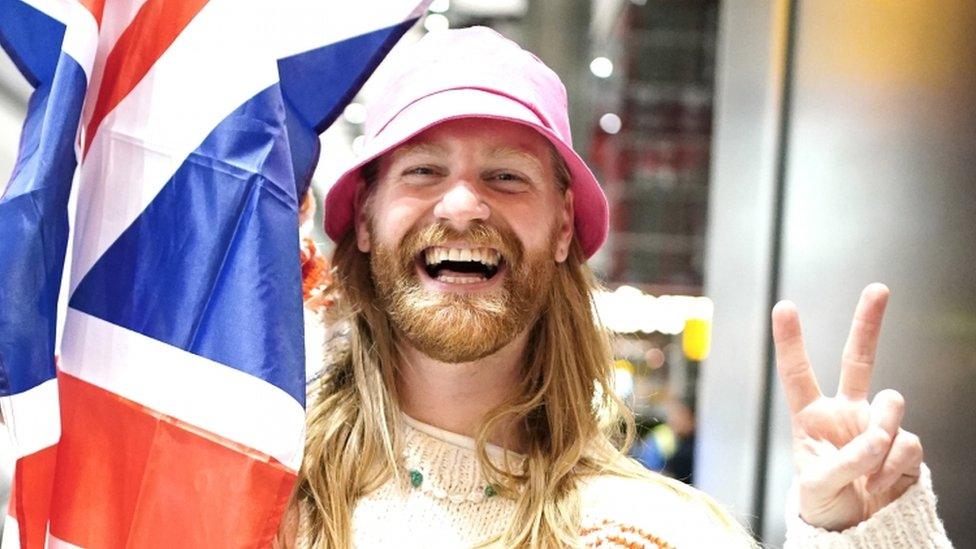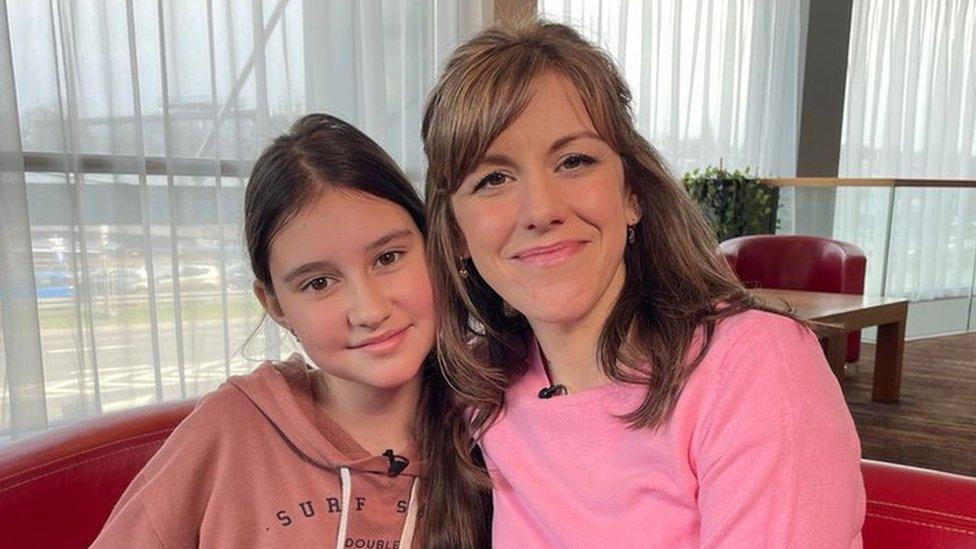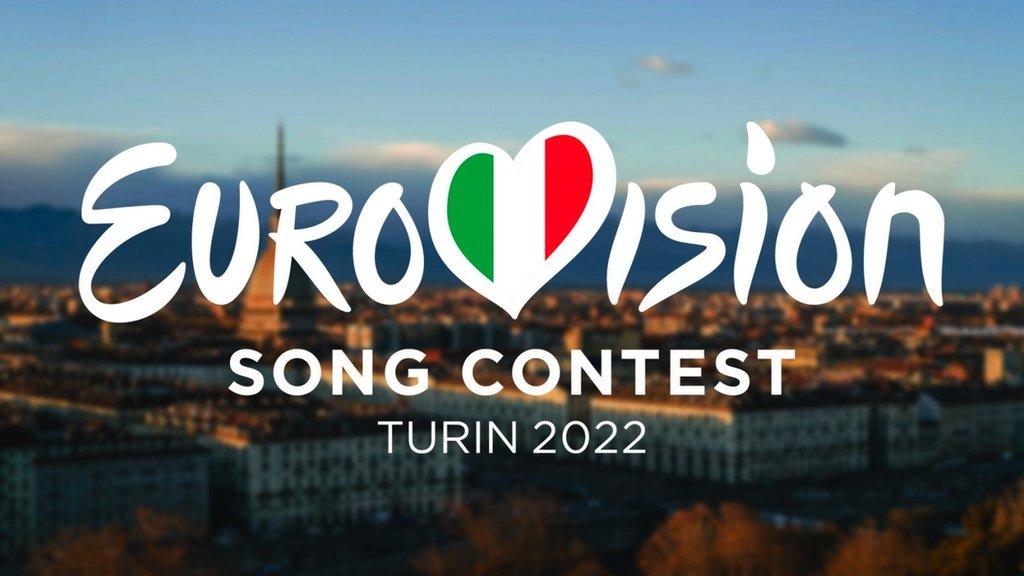Eurovision: UK to host next year's song contest
- Published
- comments

The UK's Sam Ryder was pictured in a pink Kalush Orchestra hat, in a nod to this year's Ukrainian winners
The UK will host next year's Eurovision Song Contest, organisers have confirmed.
The Ukrainian band Kalush Orchestra won this year, but given Russia's invasion of their country, the European Broadcasting Union (EBU) said it would not be possible for Ukraine to host.
As UK entry Sam Ryder was runner-up, the BBC - which broadcasts the singing competition in the UK - was asked to step in.
It's not yet known which city will host, but cities including Glasgow and Manchester have shown an interest.
Usually the next competition is held in the country which wins that year. This year the Kalush Orchestra from Ukraine won, with Sam Ryder coming in second place.
However, due to the ongoing war in Ukraine, after Russia invaded earlier this year, the EBU said for safety reasons "next year's contest cannot be held in Ukraine".
Although it is taking place in the UK, the BBC has made it clear Ukraine will be a key part of the event.
BBC director general Tim Davie said the BBC would make the event "a true reflection of Ukrainian culture alongside showcasing the diversity of British music and creativity".

Ukraine's Kalush Orchestra went on to play at Glastonbury last month
Ukraine, which had initially hoped to host the competition, has welcomed the decision.
"The 2023 Eurovision Song Contest will not be in Ukraine but in support of Ukraine. We are grateful to our BBC partners for showing solidarity with us," said Mykola Chernotytskyi, head of Ukraine's public broadcaster, UA:PBC.
Ukraine will automatically qualify for the Grand Final, as is usual for the winner, along with five other countries that automatically qualify, including the UK.
It has not yet been decided exactly where in the UK the contest will be.
Cities will have to prove they have the right facilities and go through a bidding process, where they put forward reasons why they should host. This is due to begin this week.
- Published9 May 2022

- Published26 February 2022

